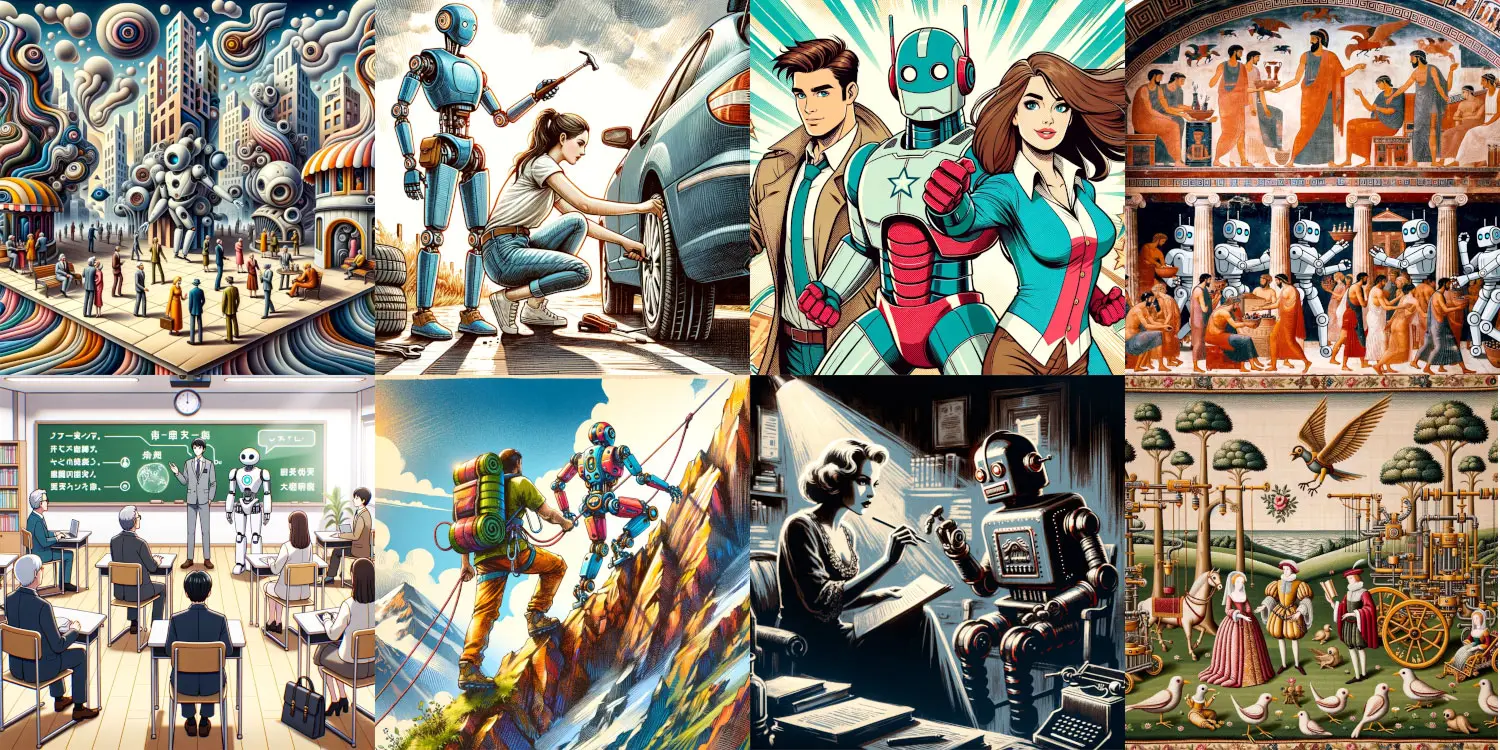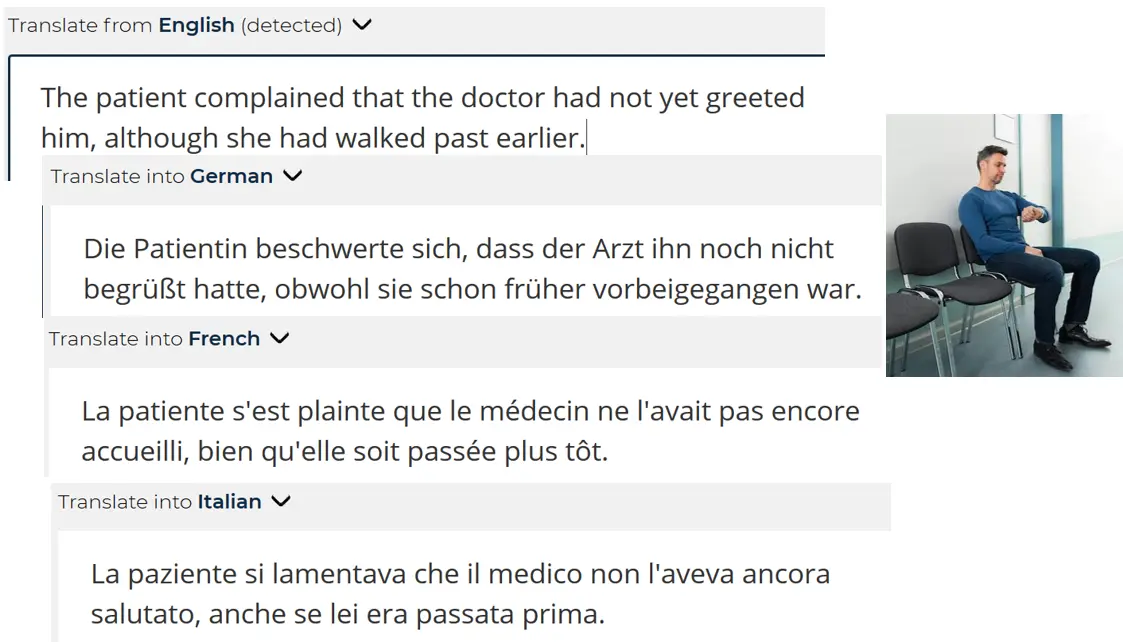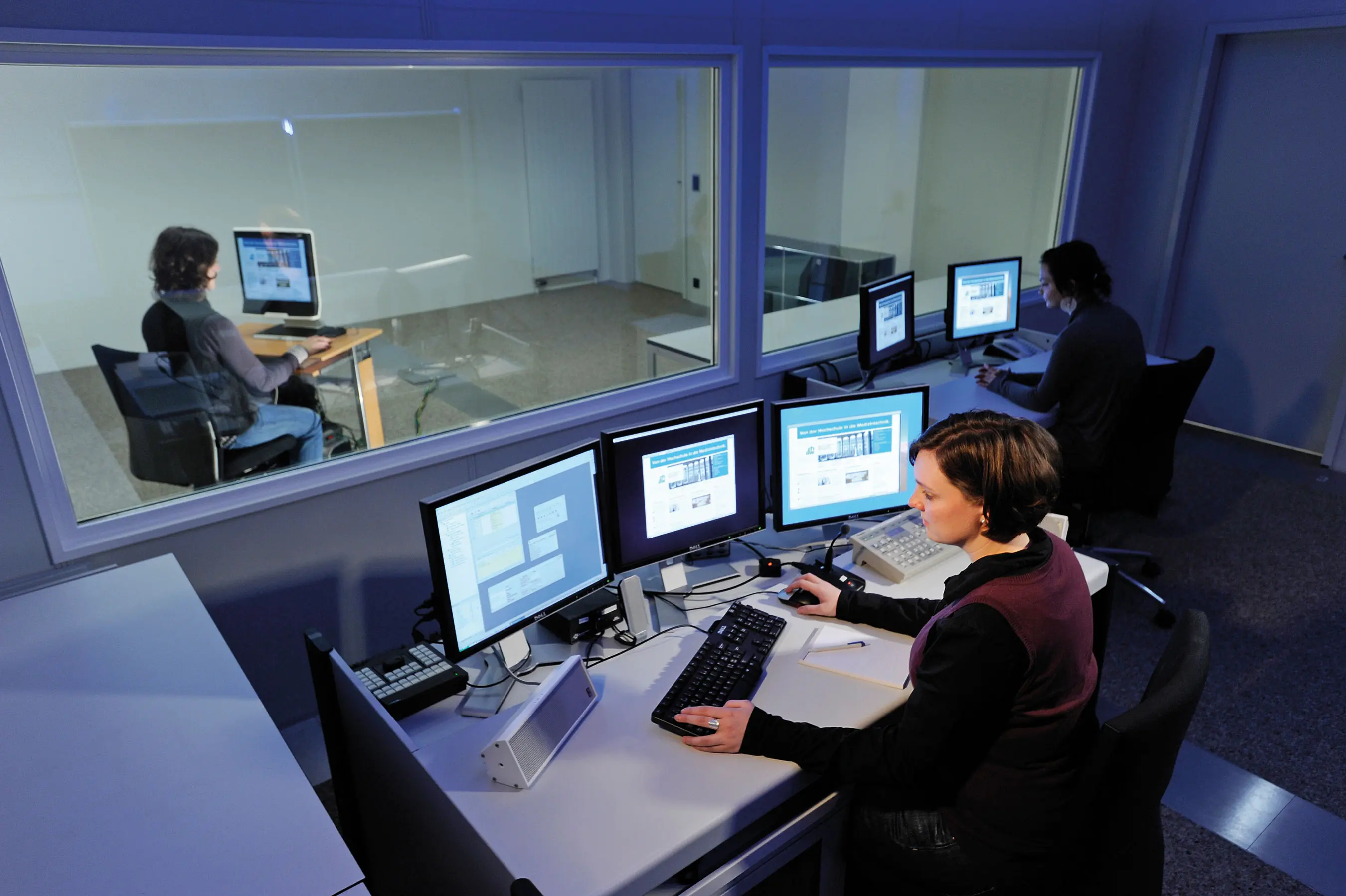Human–Machine Communication

In the Human-Machine Communication professorship, we conduct research on the interaction between language and technology. Among other things, we investigate the potential and challenges of machine translation systems in everyday life. In doing so, our goal is to find out how artificial communication can help to shape the communication of tomorrow and where human thinking is essential. Such findings act as a catalyst for advancing research because they form the basis for more human-friendly AI systems on the one hand and more machine-friendly work and communication processes on the other. This knowledge is a helpful resource for both the professional world and society as a whole as it allows for communication and language experts to be equipped with the best tools and thus help to shape the increasing trade-off between internationalisation and localisation in a professional and efficient manner.
In focus
Digital literacy in university contexts (DigLit) – focus on MT literacy

As digitalisation progresses, new technologies such as machine translation (MT) may present new opportunities, perspectives and risks for tertiary education. In the areas of research and teaching, however, it is becoming apparent that students and lecturers are often unaware of how to use the available tools, meaning they are unable to exploit their full potential. The DigLit project, which is jointly financed by swissuniversities and the partner institutions, is addressing this issue.
Digital literacy in university contexts (DigLit)
Usability Lab

The user-friendliness of products is a key success criterion in the field of technical communication – just think of the problems that can occur when dealing with a software interface that is not intuitive or a user manual that is not written in a way that is appropriate for its target audience.
Research projects
Unfortunately, no list of projects can be displayed here at the moment. Until the list is available again, the project search on the ZHAW homepage can be used.
Research-based teaching
In the BA in Multilingual Communication, the MA in Language and Communication and the doctoral programme, we offer different modules with content from the area of human-machine communication, including the following:
- Applied linguistics for language professions: automated text translation
- Communication studies seminar: the language industry of the future
- PhD seminar: AI and language: what neural machine translation teaches us about communicating through algorithms
We also supervise theses in topics such as those mentioned above.




